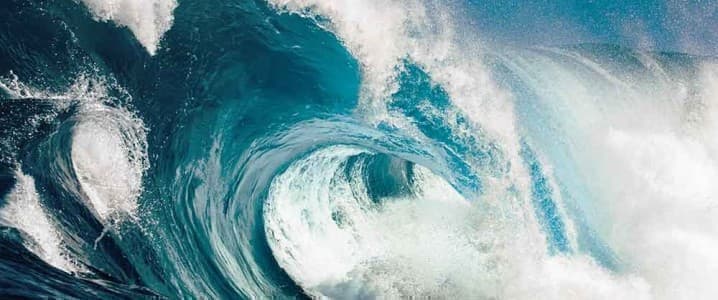There is an iron rule of resource exploitation: Go after the easy stuff first. If you don't, your competitors will and run you out of business with lower prices. But where do you go when the easy stuff runs out? (And the easy stuff always runs out.) The United States' recent expanded claims to ocean seabeds signals that the easy stuff has run out or will soon. More on those claims later.
The obvious answer to getting more resources is to start digging up the harder stuff. Sometimes it's new technology that makes the harder stuff economical to extract. Heap leach mining was developed to take low concentration ores and leach out the desired metals using chemical-laced sprays that result in a liquid "leachate." From this leachate valuable minerals such as gold, silver, copper and uranium are then extracted through further processing. (There are myriad environmental problems associated with the leachate and the tailings left behind if they spill due to leaks and floods. That would deserve a piece all by itself.)
But what happens when there isn't enough of the harder stuff on land with sufficient concentration of metals to supply the world with minerals it needs for, say, the highly touted renewable energy transition? One possible answer is the seabed which contains nodules of copper, cobalt, and manganese—all of them essential for the energy transition—that might be harvested with emerging undersea mining technology.
Of course, there is the thorny problem of who owns the ocean floor. The United Nations runs the Commission of the Limits of the Continental Shelf to help adjudicate who owns or rather who has "exclusive rights" to the ocean bottoms around the world. That's why the United States has couched its most recent assertions about U.S. rights to the ocean bed in the language of claims. Since these claims overlap with those of Russia, Canada, Japan (because of U.S. possessions in the Pacific) and the Bahamas, the commission will be asked to work out a proposed allocation.
It's not difficult to see that in the race for minerals essential to the future of our complex, technology-driven society, force rather than law may govern who gets the minerals at the bottom of the sea. What probably won't be a major concern will be the environmental effects of such mining on sea life and the knock-on effects on climate change in which the oceans play such an important and helpful role by sequestering so much of the carbon we humans produce.
By Kurt Cobb via Resourceinsights.com
More Top Reads From Oilprice.com:
- A Houthi Retaliation Could Send Oil Prices Soaring
- Is the Texas Grid Ready for This Year’s Polar Vortex?
- More Drilling Slowdowns for U.S. Oil, Gas Industry


















